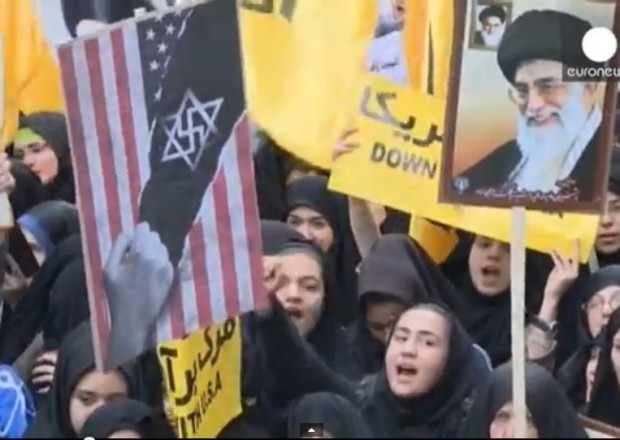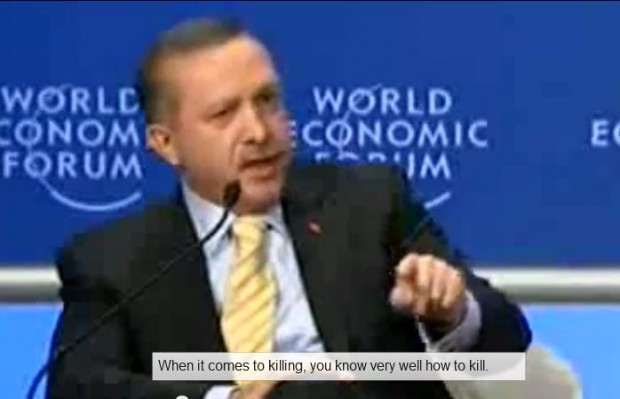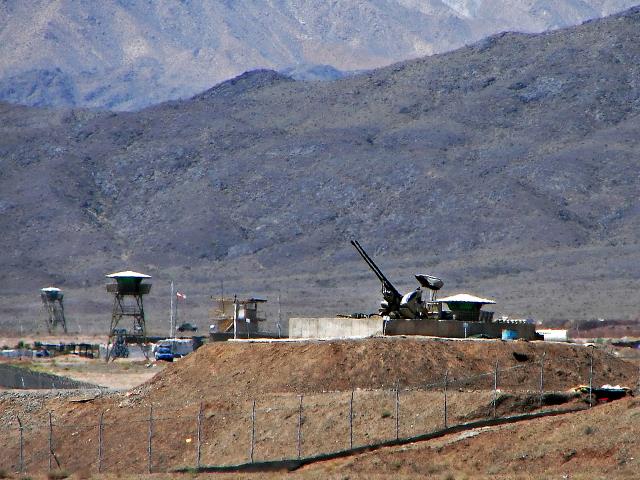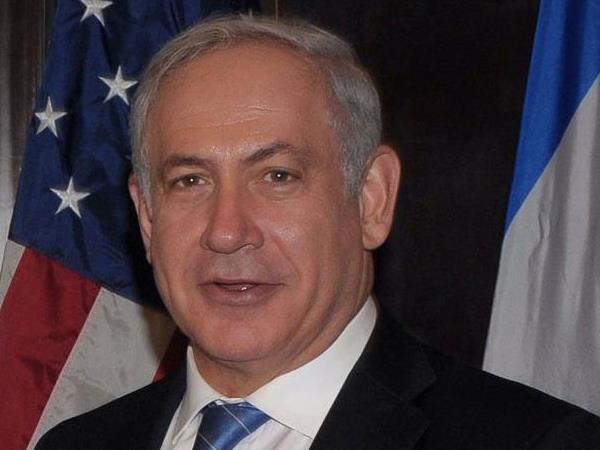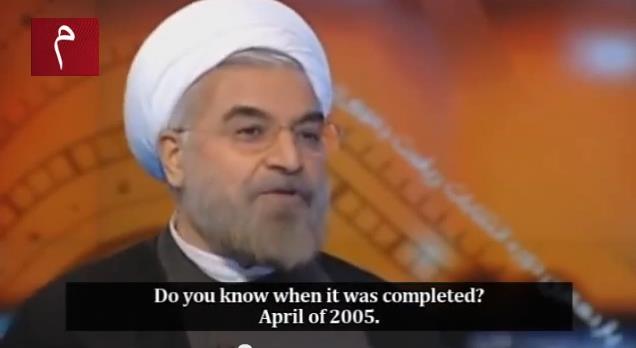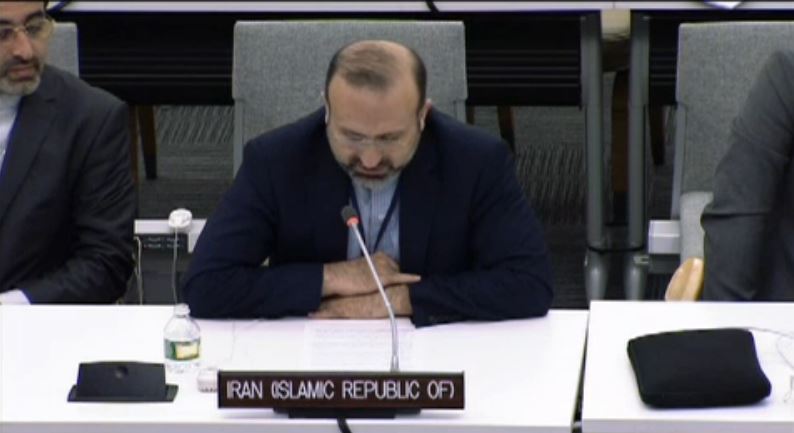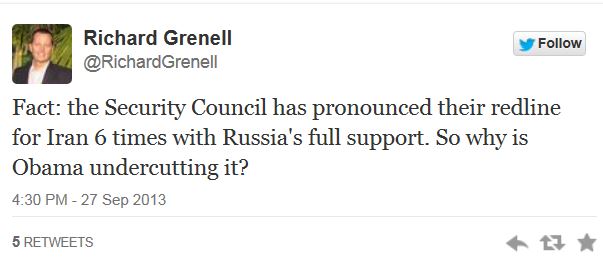Within the past two weeks, two of the most prestigious American newspapers published op-eds of enemies of the United States.
Earlier this month, the
New York Times published an
op-ed by Vladimir Putin of Russia arguing that the United States would make matters worse by attacking Syria and (among other things) denying that it was the Syrian government that used chemical weapons. Putin's op-ed also offered Russia's support for a negotiated agreement to end the Syrian civil war.
Later we learned that the op-ed was placed with
the assistance of an American PR firm.
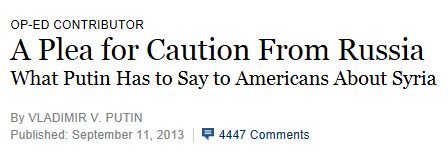
The public editor of the New York Times later defended the placement of the op-ed. In the course of her defense,
she quoted editorial page editor, Andrew Rosenthal:
“There is no ideological litmus test” for an Op-Ed article, he said. In addition, he said, it is not the purpose of the Op-Ed pages to help or hurt the American government. It is to present a variety of interesting and newsworthy points of view, at least some of which will be contrary to The Times’s own point of view, expressed in its editorials.
The Times has published very few Op-Ed pieces by heads of state, Mr. Rosenthal said, partly because they have their own ways of getting their messages out. ...
I asked him about Mr. Putin’s statement that there is “every reason to believe” that the poison gas has been used by opposition forces, not the Syrian government – which many now do not believe to be true. Mr. Rosenthal said that “falls into the category of opinion.”
The "ideological litmus test" argument is misdirection. The Times has not hesitated to refuse Op-Eds from political figures seeking to set the record straight, including
John McCain and
Scott Walker.
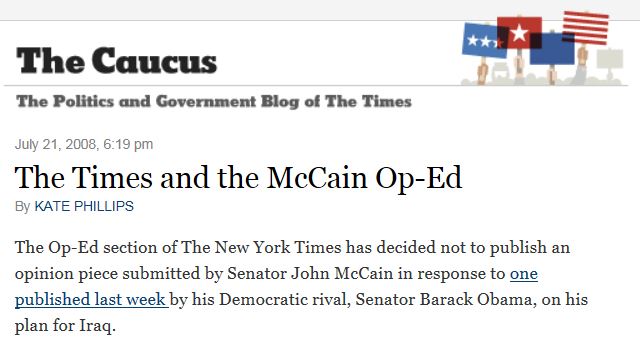
The goal of Putin's op-ed was to solidify American public opinion against an attack on Syria. Assuming that that was President Obama's intent, Putin's main goal was to undermine the public position of the American president. (Admittedly, even without the op-ed, the American public was against such a strike. Furthermore, once President Obama chose to ask Congress for the authorization of force,
it pretty much eliminated any chance that he would use attack Syria.)
Rosenthal's odd assertion that a false statement could be excused as an "opinion," is beyond ridiculous. (More on this later.)
A subsequent new article,
As Obama Pauses Action, Putin Takes Center Stage, highlighted Putin's role in protecting Syria at America's expense.
In an Op-Ed article in The New York Times released on Wednesday, Mr. Putin laid down a strong challenge to Mr. Obama’s vision of how to address the turmoil, arguing that a military strike risked “spreading the conflict far beyond Syria’s borders” and would violate international law, undermining postwar stability.
“It is alarming that military intervention in internal conflicts in foreign countries has become commonplace for the United States,” Mr. Putin wrote. “Is it in America’s long-term interest? I doubt it.” ...
Now he appears to be relishing a role as a statesman. His spokesman, Dmitri S. Peskov, said in an interview that the Russian president was not seeking “ownership of the initiative,” but wanted only to promote a political solution to head off a wider military conflict in the Middle East.
By mentioning the op-ed in the course of a news article, the Times gave the op-ed an extra boost of credibility. Now it wasn't just an opinion, but a news item promoted by the New York Times. True, the report later acknowledged that Putin's claim about chemical weapons was dubious. But by writing an article about how President Putin was becoming a statesman (at America's expense) and citing the op-ed they had just published as proof of that, they elevated an opinion article into news.

